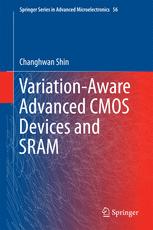

Most ebook files are in PDF format, so you can easily read them using various software such as Foxit Reader or directly on the Google Chrome browser.
Some ebook files are released by publishers in other formats such as .awz, .mobi, .epub, .fb2, etc. You may need to install specific software to read these formats on mobile/PC, such as Calibre.
Please read the tutorial at this link: https://ebookbell.com/faq
We offer FREE conversion to the popular formats you request; however, this may take some time. Therefore, right after payment, please email us, and we will try to provide the service as quickly as possible.
For some exceptional file formats or broken links (if any), please refrain from opening any disputes. Instead, email us first, and we will try to assist within a maximum of 6 hours.
EbookBell Team

4.1
90 reviewsThis book provides a comprehensive overview of contemporary issues in complementary metal-oxide semiconductor (CMOS) device design, describing how to overcome process-induced random variations such as line-edge-roughness, random-dopant-fluctuation, and work-function variation, and the applications of novel CMOS devices to cache memory (or Static Random Access Memory, SRAM). The author places emphasis on the physical understanding of process-induced random variation as well as the introduction of novel CMOS device structures and their application to SRAM.
The book outlines the technical predicament facing state-of-the-art CMOS technology development, due to the effect of ever-increasing process-induced random/intrinsic variation in transistor performance at the sub-30-nm technology nodes. Therefore, the physical understanding of process-induced random/intrinsic variations and the technical solutions to address these issues plays a key role in new CMOS technology development. This book aims to provide the reader with a deep understanding of the major random variation sources, and the characterization of each random variation source. Furthermore, the book presents various CMOS device designs to surmount the random variation in future CMOS technology, emphasizing the applications to SRAM.